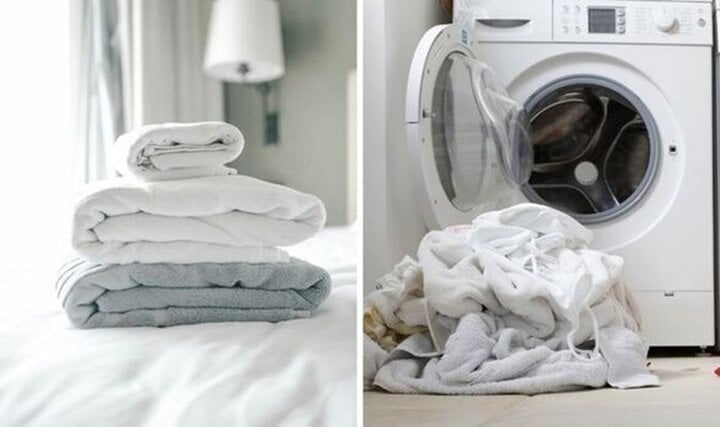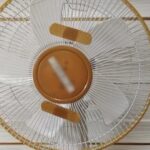Maintaining a clean and fresh-smelling bedsheet is essential for a good night’s sleep and overall health. Adding a certain liquid to the washing process can help achieve this.
Bedsheets come into direct contact with our bodies daily, making them susceptible to dust, body oils, dead skin cells, and bacteria. If not cleaned regularly, bedsheets can become a breeding ground for bacteria, mold, and dust mites, leading to itching and skin problems. Unhygienic bedsheets with a musty smell can also affect your mood and sleep quality. Therefore, it is crucial to wash your bedsheets frequently.
Add This Liquid to Your Bedding Laundry for a Fresh and Clean Scent
The ideal liquid to clean and disinfect your bedsheets is white vinegar. Vinegar is a powerful bacteria-killer and fabric softener, ensuring your bedsheets come out of the wash clean and fresh-smelling. To preserve the color of your bedsheets, especially white ones, opt for white vinegar over colored varieties.

White vinegar is perfect for cleaning and disinfecting your bedsheets.
For an extra boost of fragrance and antibacterial power, add a few drops of essential oil to the mix.
Instructions: Prepare a bowl containing 250ml of white vinegar and 10-15 drops of essential oil (such as lavender, green tea, or lemon oil). Mix the vinegar and essential oil in a small bowl.
When washing your bedsheets, pour the vinegar and essential oil mixture into the fabric softener compartment of your washing machine or directly into the drum. Then, add your usual detergent. Select the appropriate washing cycle for your bedsheet fabric and let the machine do its work. Once the cycle is complete, hang your bedsheets out to dry in the sun.
Note: Using excessive vinegar can reduce the lifespan of your washing machine, so stick to the recommended amount.
Additional Tips for Clean and Fragrant Bedsheets
In addition to white vinegar and essential oils, try these methods to enhance the cleanliness of your bedsheets:
Baking Soda and Salt
Baking soda is a potent disinfectant, and salt helps preserve color and boosts antibacterial properties.
Instructions: Mix 1/2 cup of baking soda with 1/4 cup of salt in a small bowl. Pour this mixture into your washing machine along with your detergent (or laundry liquid/pods) and select a hot water cycle if available to maximize disinfection. After washing, you can sun-dry your bedsheets or use a dryer if the weather is damp.

Baking soda and salt work together to disinfect and preserve color.
Orange Peels and Rice Water
Orange peels and rice water effectively remove stains and impart a pleasant fragrance.
Instructions: Boil orange peels in rice water for 5-10 minutes, then remove the peels and let the water cool down. Soak your bedsheets in this solution for about 30 minutes to tackle stains, then put them through a regular wash cycle in the machine.
Using natural ingredients like white vinegar, essential oils, baking soda, salt, orange peels, and rice water is environmentally friendly and safe for your health. These ingredients effectively kill bacteria, disinfect, and remove stains, keeping your bedsheets clean and fresh. However, to prevent allergic reactions, ensure that you are not sensitive to any of the ingredients used.
The Ultimate Guide to Cleaning Your Blender: A Safe and Speedy Approach
As we embark on the task of cleaning our trusty blender, it’s important to exercise caution. The blades within are incredibly sharp, and one wrong move could result in a nasty cut. Safety must always come first when handling such equipment, so let’s approach this cleaning endeavor with care and precision.



































